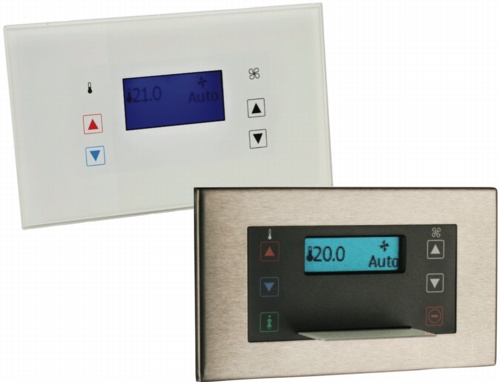Comfort with control

Building controls play a vital role in achieving the balance between hotel guest comfort and energy efficiency. Jim Barlow describes the latest technologies.
Clients in the hotel sector are faced with a number of challenges. Keeping customers comfortable during what could be just a one-night stay is only one of them. They also have to consider the quality of design of their buildings.
Jim Barlow, managing director of Titan Products, designers and manufacturers of building controls, says that the company realised the importance of design to the hotel sector early on.
“In the hotel sector we often work with the architect, interior designer and the hotel owners and we realised a while ago that we had to offer high standards in design and appearance. They don’t want an awful-looking user control panel in their hotel bedrooms,” says Barlow.
This belief has been implemented into Titan Products’ latest BACnet-enabled controllers that incorporate touch-sensitive technology, graphical interface screens with a link to card readers outside the room in the hotel corridor. There is an option for a complete glass fascia finish to the room controllers. This Crystal Range offers elegance with technology and is proving extremely popular.
The first Titan products designed for the hotel sector were used in Hilton and Radisson hotels. These were flush-mounted fan-coil controllers mounted on a decorative wall plate. From those early designs, Titan has developed products to offer hotel clients a bespoke solution that combines the latest controls technology with aesthetic design.
“The room user interface needs to meet the standards that the client sets for the quality of the hotel and the user experience they want to deliver to their guests,’ adds Barlow. But looks aren’t everything. Along with aesthetics, Titan delivers building controls that help to improve customer experience. One of the best examples of this combination can be seen at the Sofitel Hotel at Heathrow’s Terminal 5 (originally part of the Aurora Hotel Group).
Barlow says: “We worked closely with the hotel’s project team and controls specialist Trane to help deliver a product that would operate effectively as an integrated control system, with a unique high-quality user interface.”
Energy efficiency was closely considered in this project, and was achieved by setting three levels of internal environment for each room.

“The control system for each room is linked via the building management system to the hotel front-desk,” says Barlow. “Unlet is the lowest environmental level. The control system holds the room temperature and humidity at a level that protects the furnishings.”
Once a customer checks in and is issued with a key card, a signal from the front-desk automatically puts the room in a ‘get ready’ phase. This is a fast recovery level. In hot climates this could mean that the room starts to cool further, or in colder climates the room temperature will start to rise.
The third level is reached when the hotel guest inserts their room card key into the room controller. This allows the occupant to control temperature, humidity and lighting directly, although room temperature levels are still kept within an energy-efficient range.
“Within the hotel sector, we have to remember that they want to create an overall experience for guests, and that is not simply about room temperature. The controls can help to make other aspects of their visit more pleasant and smooth as well,” says Barlow.
At the Sofitel, once the room is occupied a signal is received at the front desk to let staff know. As this is an airport hotel, with many guests sleeping during the day, the system also ensures that these guests are undisturbed. Occupants can simply press a Do Not Disturb button, which registers on the room controller display, on the corridor access control plate and at the front desk. In this way both housekeeping and front-desk staff know which guests should be left in peace. “It works much better than a cardboard sign on the door handle,” adds Barlow.
One of the most important aspects of controls in the hotel environment is that they are usable. “Guests are often only there for one or two nights, so the controls must be easy to use. By ensuring that users understand the controls we can cut down on complaints, and run the hotel more effectively,” says Barlow.
After T5 Sofitel, Titan Products supplied a range of BACnet enabled controllers and room interfaces to the 170 bedroom Hilton Hotel in Reading, and have since gone from strength to strength supplying products to numerous hotel and commercial projects each year.







